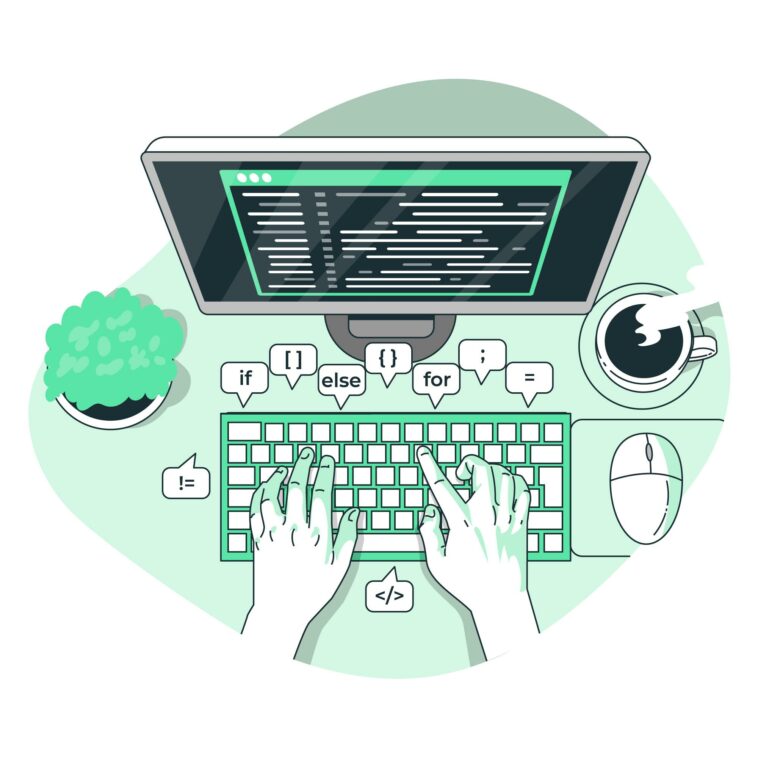Python, renowned for its simplicity and versatility, has cemented its place as a cornerstone in the programming world. Whether you’re a beginner or a seasoned coder, mastering Python can open doors to a myriad of opportunities. This comprehensive guide dives into effective hacks and strategies for learning Python programming, ensuring a smoother and more efficient journey to coding proficiency.
Embracing Python: The Journey Begins
Python’s appeal lies in its readability and straightforward syntax, making it an ideal language for beginners and a powerful tool for experienced developers. The journey to mastering Python involves understanding its nuances and applying practical strategies to enhance your coding skills.
Understanding Python’s Core Philosophy
- Readability: Python emphasizes clear, readable code, making it easier to learn and maintain.
- Simplicity: Its syntax is straightforward, with a focus on simplicity and avoiding unnecessary complexities.
- Versatility: Python is used in various fields, from web development to data science and machine learning.
Python Programming Hacks for Beginners
- Start with Basics: Begin with fundamental concepts like variables, data types, loops, and functions.
- Interactive Python Shells: Utilize tools like IDLE or Jupyter Notebook for interactive coding and immediate feedback.
- Small, Consistent Steps: Practice regularly with small, manageable projects to build confidence and skills gradually.
Effective Learning Resources
There’s an abundance of resources available for learning Python. Online courses, tutorials, forums, and Python communities offer valuable insights and guidance. Websites like Codecademy, Coursera, and Stack Overflow are excellent starting points.
Hands-On Projects: Learning by Doing
Engaging in real-world projects is crucial for applying and solidifying your Python knowledge. Start with simple projects like a calculator or a basic game, and gradually move to more complex applications.
Understanding Python Libraries and Frameworks
Python’s power is amplified by its extensive libraries and frameworks. Familiarize yourself with popular libraries like NumPy for numerical computations, Pandas for data manipulation, and Django for web development.
Debugging and Problem-Solving in Python
Effective debugging is an essential skill. Learn to read error messages, use debugging tools, and break down problems into smaller, manageable parts.
Writing Clean and Efficient Code
- Code Readability: Write code that’s easy to read and understand, adhering to Python’s PEP 8 style guide.
- Efficient Coding Practices: Optimize code for performance, using list comprehensions and generator expressions.
- Refactoring: Regularly review and refactor your code to improve efficiency and readability.
Collaborative Coding and Open Source Contribution
Collaborating on open-source projects or contributing to GitHub repositories can provide real-world experience, feedback from the coding community, and exposure to diverse coding styles and practices.
Exploring Advanced Python Topics
As you progress, delve into advanced topics like asynchronous programming, decorators, and context managers. Explore Python’s role in data science, machine learning, and artificial intelligence.
Staying Updated with Python Trends and Updates
The Python landscape is continually evolving. Stay informed about the latest trends, version updates, and best practices by following Python blogs, podcasts, and news sites.
Python Coding Challenges and Competitions
Participate in coding challenges and competitions like Hackerrank or Codeforces to test your skills, learn new techniques, and engage with a community of like-minded enthusiasts.
FAQs on Learning Python Programming
- Q: How long does it take to become proficient in Python? A: The time varies based on your learning pace and practice. Regular practice can lead to proficiency in a few months.
- Q: Can Python be a starting point for learning other programming languages? A: Yes, Python’s straightforward syntax makes it an excellent foundation for learning other languages.
- Q: Is Python suitable for large-scale applications? A: While Python is often used for smaller applications, it’s also capable of handling large-scale applications, especially when optimized for performance.
Conclusion: Python as a Gateway to Coding Mastery
Python is more than a programming language; it’s a gateway to the vast world of coding and software development. By harnessing the power of Python through effective learning strategies, hands-on projects, and community engagement, you can unlock endless possibilities in the technological realm.
Final Thoughts
In conclusion, mastering Python programming is a journey of continuous learning and growth. With dedication, practice, and the right strategies, anyone can become proficient in Python, paving the way for a successful and fulfilling coding career.



